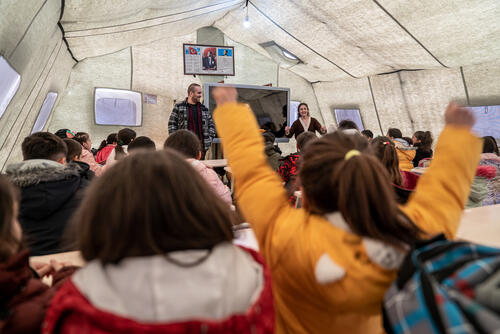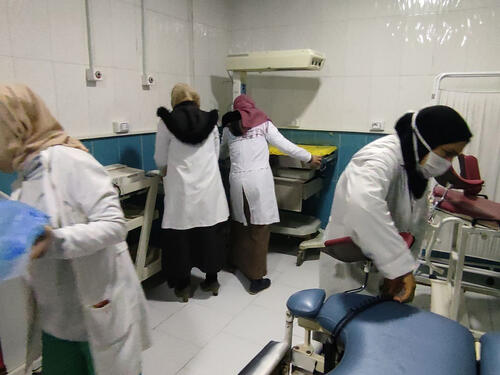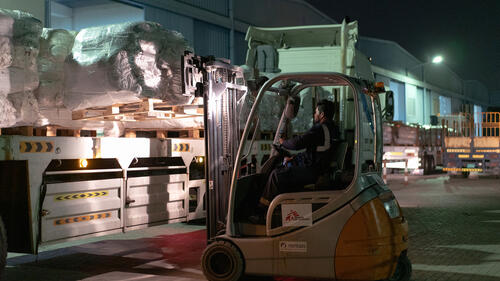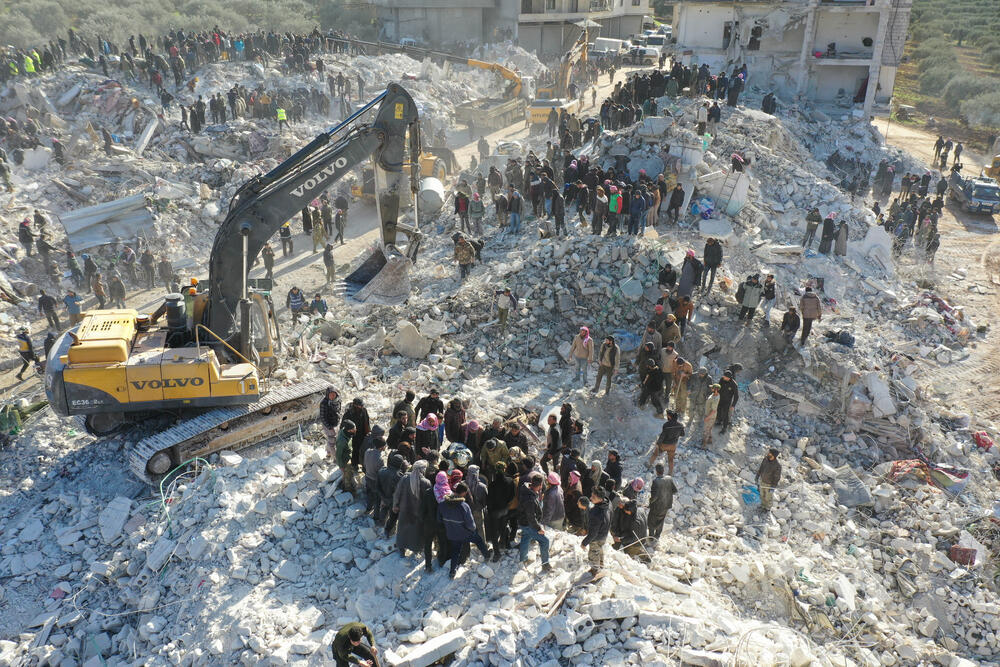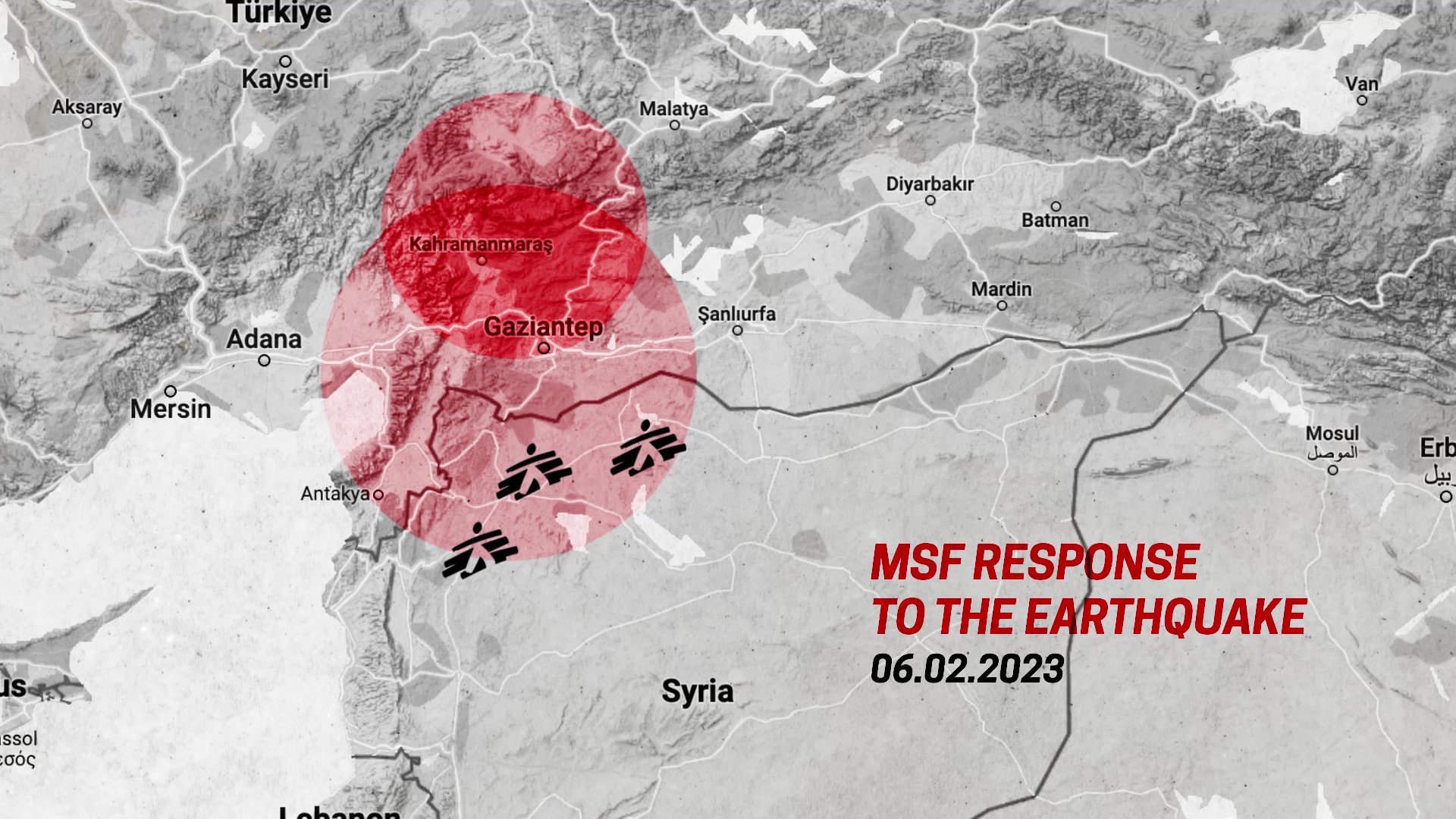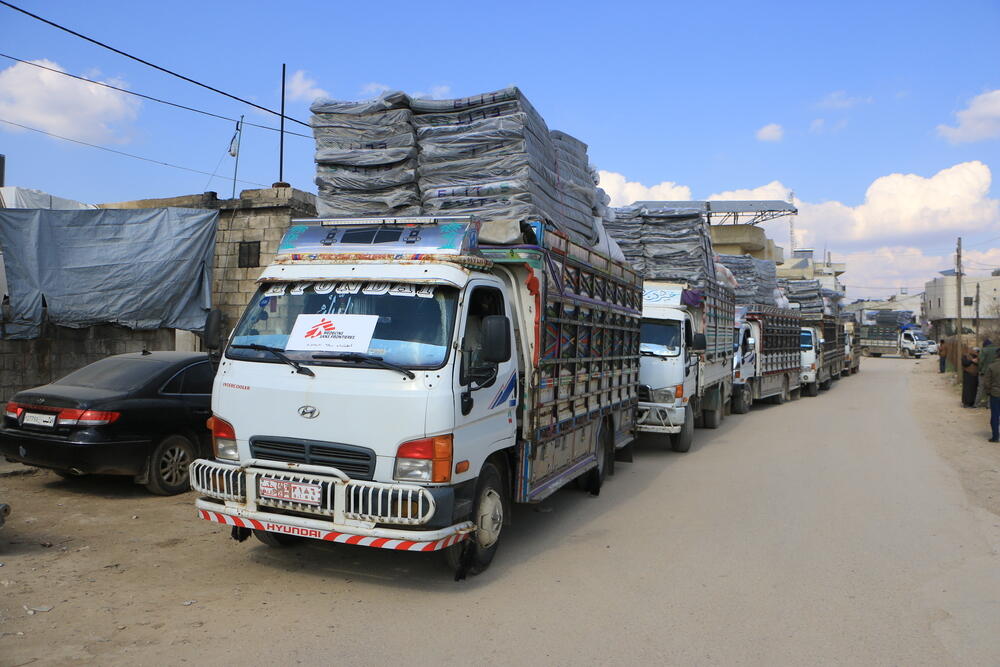Syria-Turkey earthquakes
In the early hours of Monday 6 February, two major earthquakes hit northwest Syria and southeast Turkey (Türkiye) causing devastation on a vast scale.
Médecins Sans Frontières / Doctors Without Borders (MSF) teams – already working in northern Syria – immediately launched an emergency response and began treating patients and delivering supplies.
According to official estimates, a staggering 55,000 people have died and thousands more have been injured across the two countries. However, the full impact of the disaster is still being felt today.
What is MSF doing?
MSF teams were responding in northwest Syria from the first hours of the disaster.
- In northwest Syria, MSF-supported hospitals saw more than 7,600 injured patients in the first two weeks
- As of 27 Februrary 2023 our teams had donated 27 tons of medical supplies to 38 other hospitals and clinics including emergency trauma and surgery kits, medicines, lab equipment and blankets
- We dispatched expert staff to support hard-hit healthcare facilities and opened triage tents outside four wards
- We ran five mobile clinics at reception centres and camps and provided more than 5,600 medical consultations in the first three weeks after the earthquake.
- We deployed our ambulances and supported 90 other ambulances to transfer patients
- As of 27 February, our teams had distributed 30,232 relief items to affected families, including blankets, hygiene supplies and food at sites across Aleppo and Idlib
- We worked in partnership with organisations in southern Türkiye to provide first aid, food items, hygiene kits and safe water to affected communities and healthcare facilities
The crisis: In-depth
The humanitarian situation in Syria was precarious before the earthquakes struck. The disaster has had massive consequences for the millions already living in vulnerable conditions.
After 12 years of civil war, around 14.6 million people in Syria need aid. The country also hosts the largest number of displaced people in the world at around 6.9 million, mostly women and children. Thousands more people will now be homeless.
It’s important to note that some of the hardest-hit areas of southern Türkiye were also home to large numbers of Syrian refugees who had fled the conflict.
Access to healthcare has long been critical in northwest Syria. However, medical staff and facilities across the region have been severely impacted by the earthquakes.
Hospitals have been damaged or destroyed, including two MSF maternity centres that have been forced to evacuate due to the risk of collapse. Sadly, two MSF staff members died in the earthquake, while many others lost family members.
Beyond the initial life-saving response, the healthcare crisis is evolving:
Millions of people need mental health support, families facing freezing conditions will need shelter and basic supplies, and vulnerable people with existing chronic conditions will need ongoing care. The damage to infrastructure means increased risk of diseases such as cholera: our teams were already responding to a widespread outbreak in northern Syria when the earthquake hit.
MSF in Syria: before the earthquakes
A brutal civil war has raged in Syria for over a decade, killing hundreds of thousands of people, displacing millions more, and causing widespread destruction and suffering. Civilian areas have been routinely bombed and access to healthcare remains extremely poor.
MSF has been present in Syria since 2009. However, our teams currently operate amid severe insecurity that can hamper humanitarian aid projects.
In areas where we can negotiate access and assurances of our staff’s safety, we run or support hospitals and health centres, and provide healthcare in displacement camps. We also support existing healthcare facilities through donations of medicines and equipment, the remote training of staff, and financial aid to cover running costs.
Syria-Türkiye earthquakes: News and stories
